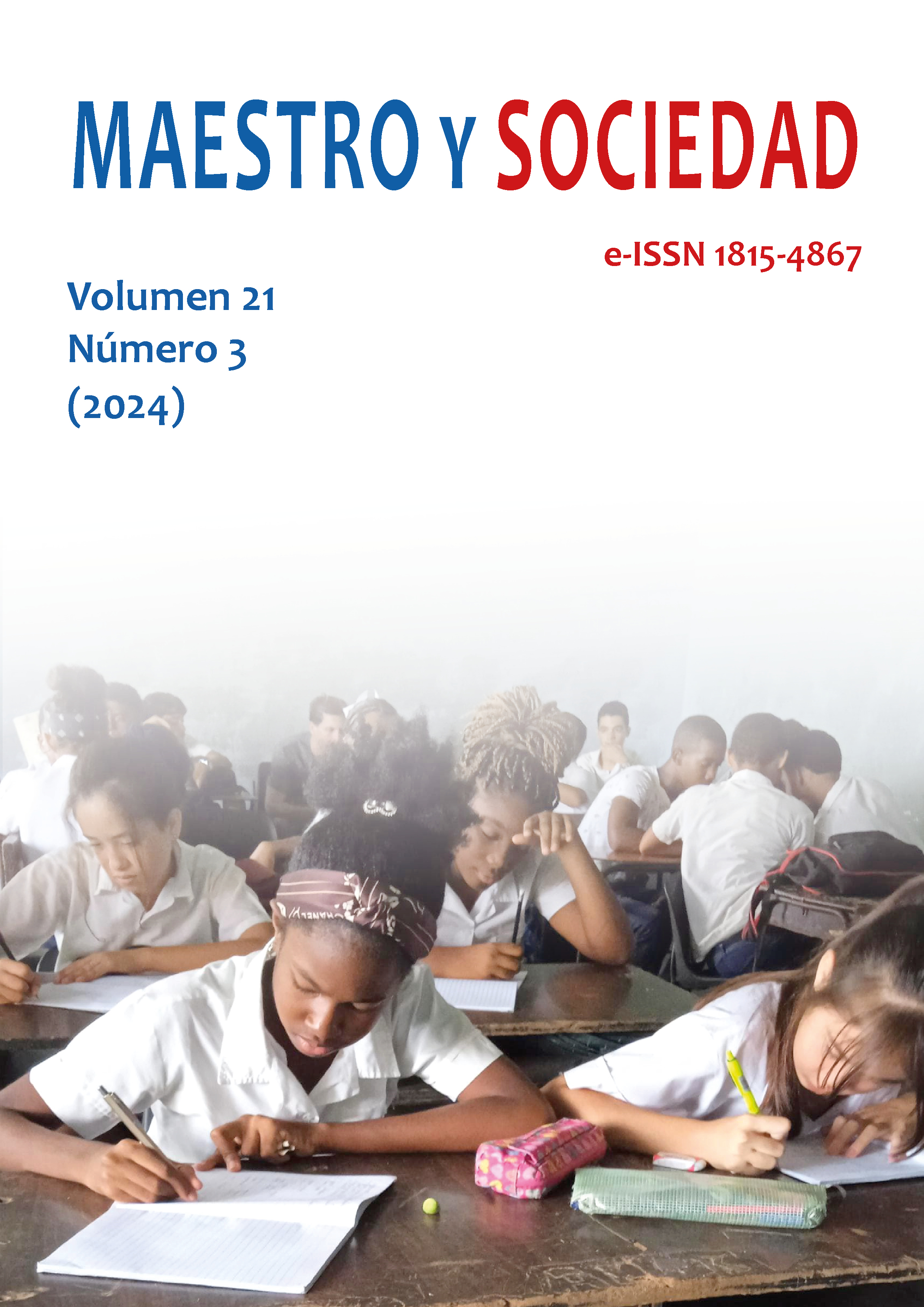System of activities to contribute to the active participation of parents in the teaching-learning process of the students of the “Dr. José María Velasco Ibarra”
Keywords:
Parental participation, Collaboration, Teaching-learning process, Activity system and academic performanceAbstract
Introduction: The scientific article addressed the relevance of collaboration between school and families in the teaching-learning process of students at the "Dr. José María Velasco Ibarra" Elementary Basic Education School. The objective of the study was to design a system of activities to encourage parental participation in the teaching-learning process. Materials and methods: The methodological design applied was intended to address practical problems and improve parental participation in education, along with a mixed qualitative-quantitative approach to collect detailed data. In addition, a cross-sectional study was used to validate the effectiveness of the educational strategies used, ensuring their pedagogical relevance. Results: The results showed that most teachers used technologies in a moderate way, with 22% demonstrating active use and 12% with low use. A lack of parental involvement in the teaching-learning process was identified, which negatively impacted the academic performance and comprehensive development of students. Discussion: The proposal consisted of implementing a system of activities that encourages collaboration between school and families, promoting a more enriching educational environment focused on student success. Conclusions: The conclusions highlighted the importance of strengthening collaboration between school and families to improve students' educational success. The need to implement strategies to encourage active participation of parents was emphasized, recognizing their positive influence on academic performance and emotional well-being of students. It was suggested to establish effective communication mechanisms and promote parental involvement in educational decision-making to create a more enriching school environment focused on the comprehensive development of students.
References
Epstein. (2010). La influencia del seguimiento colaborativo entre profesores y padres de la asistencia escolar en el rendimiento académico de los alumnos en el subcondado de Nyahururu, Kenia. Ciencia y Educación, 8(6), 367-375. doi:10.12691/education-8-6-2
Carrera & Mazzarella. (2001). La Participación de la Familia y su Vinculación en el Proceso de Enseñanza-Aprendizaje, en la Educación Inicial. Revista Científica CIENCIAEDUC, 9(1). http://portal.amelica.org/ameli/journal/480/4803363026
Evans, F., & Olivier, F. (2022). “MEJORAR LA CONVIVENCIA” Una relectura analítica de experiencias innovadoras en escuelas latinoamericanas. Revista Mexicana de Investigación Educativa, XXVII(92), 15-45. doi:https://dialnet.unirioja.es/descarga/articulo/8254471.pdf
Henderson, A. & Mapp, A. (2022). Un abordaje al perfil del profesional capaz de establecer una colaboración eficaz y positiva entre familia y escuela. Revista de Psicología, 1, 213-220. https://dialnet.unirioja.es/descarga/articulo/6456218.pdf
Martos A. (2019). Razonamiento deductivo: qué es, método, características y 4 ejemplos de lógica deductiva. Cinconoticias, 1(1), 32-45. doi:https://www.cinconoticias.com/razonamiento-deductivo/
Ortiz, C. & Cepeda, R. (2022). Integración de los Padres de Familia al Proceso Formativo como Fundamento del Aprendizaje Significativo. https://repositorio.cuc.edu.co/bitstream/handle/11323/9540/Integraci%C3%B3n%20de%20los%20padres%20de%20familia%20al%20proceso%20formativo%20como%20fundamento%20del%20aprendizaje.pdf?sequence=1&isAllowed=y
Pavez, R. (2016). Estrategias para promover la participación de los padres en la educación de sus hijos: el potencial de la visita domiciliaria. Estudios Pedagógicos, XLII(2), 449-462. http://www.redalyc.org/articulo.oa?id=173548405026
Saldivar, R. & Mayorquin, C. (2019). Participación de los padres en el rendimiento académico de alumnos de primaria. Revisión de literatura. RIDE. Revista Iberoamericana para la Investigación y el Desarrollo Educativo, 9(8). https://doi.org/10.23913/ride.v9i18.480
Sanz, G., Prados, H., Martínez, P. & Vicente, G. (2016). Participación familiar en la etapa de educación primaria Perfiles Educativos. Perfiles Educativos, XXXVIII(154), 97-117. http://www.redalyc.org/articulo.oa?id=13248313006
Williams. (2018). A Meta-Analysis of the Relation of Parental Involvement to Urban Elementary School Student Academic Achievement. Urban Education, 40(3), 237-269. http://dx.doi.org/10.1177/0042085905274540
Published
How to Cite
Issue
Section
License
Copyright (c) 2024 Nora Vaneza Jimenez Troya, Jessica Victoria Frías Córdova, Katia Lisset Fernández Rodríguez, Wilber Ortiz Aguilar

This work is licensed under a Creative Commons Attribution-NonCommercial-NoDerivatives 4.0 International License.
This journal provides immediate open access to its content, based on the principle that offering the public free access to research helps a greater global exchange of knowledge. Each author is responsible for the content of each of their articles.



























 Universidad de Oriente
Universidad de Oriente 